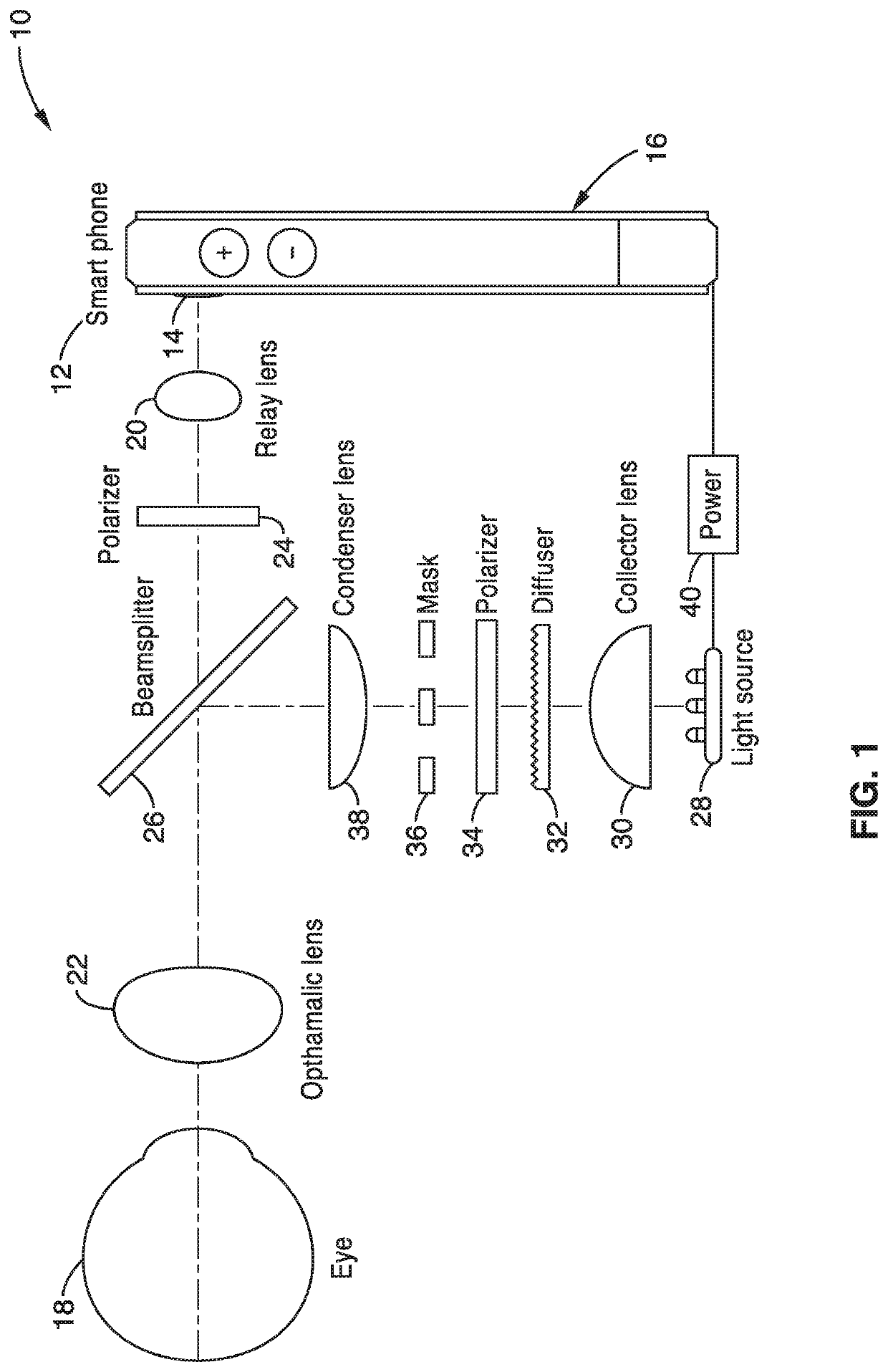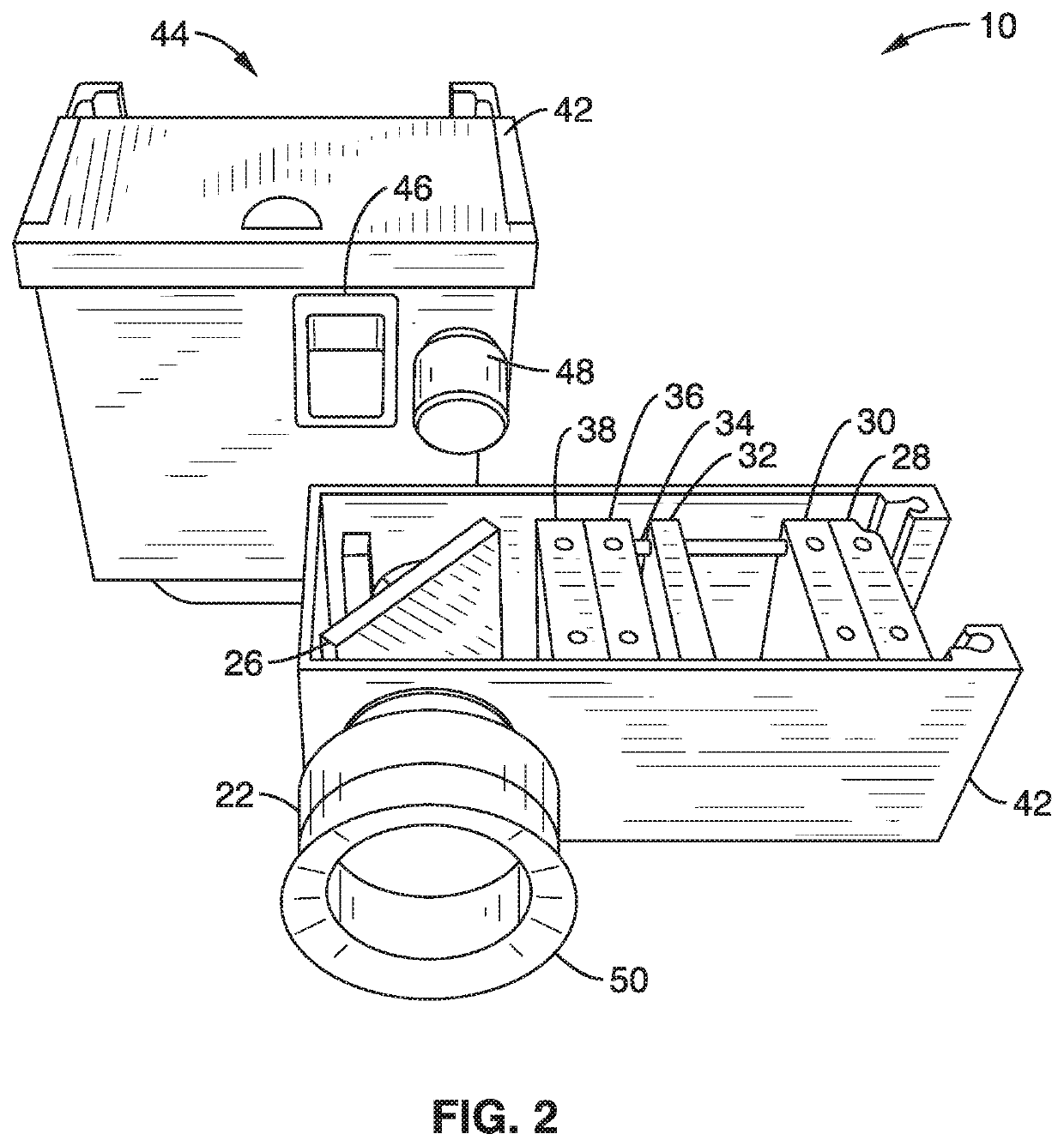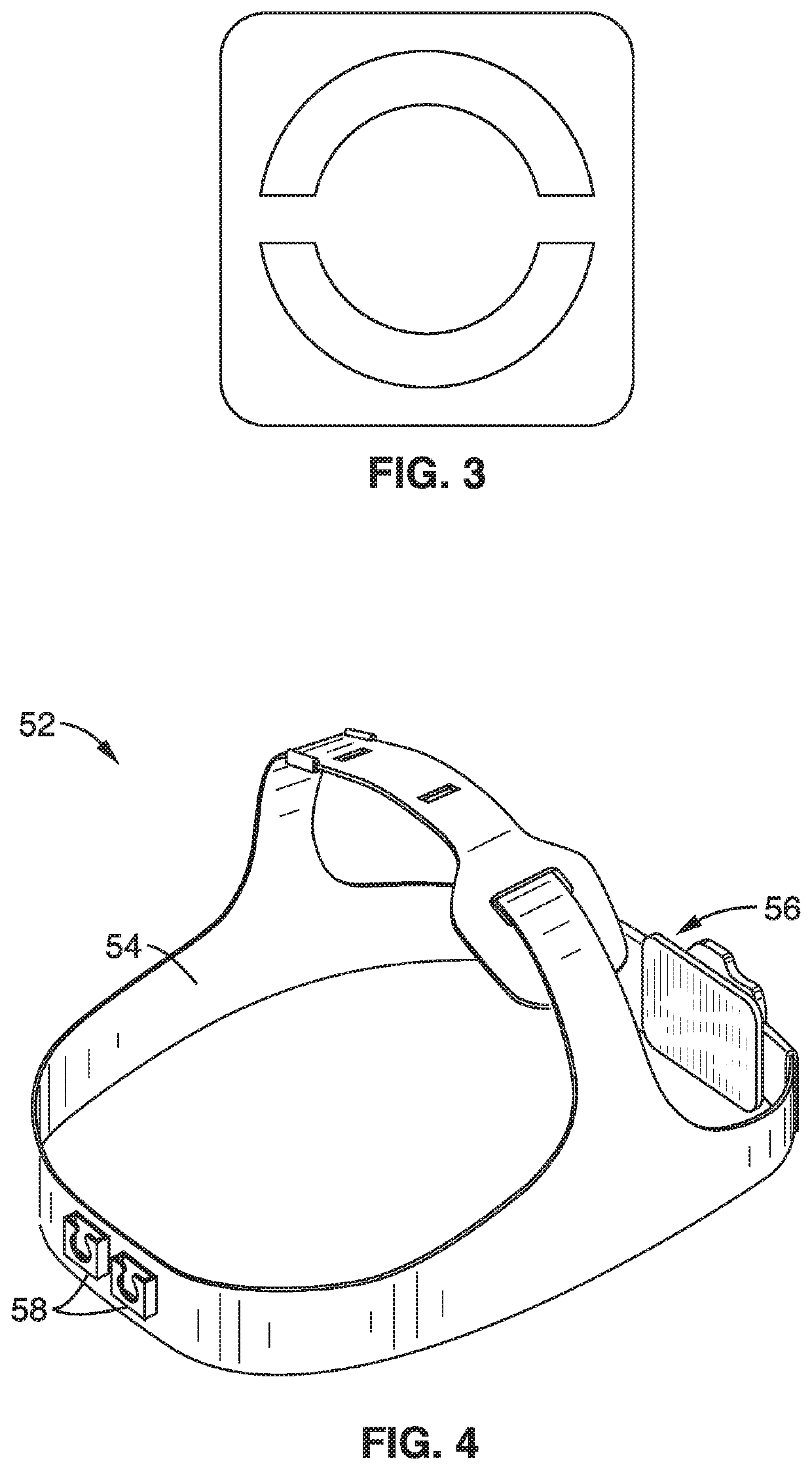Retinal cellscope apparatus
a retinal cell and apparatus technology, applied in the field of ocular diagnostic imaging devices, can solve the problems of high equipment cost, limited access to fundus photography, and shortage of trained personnel
- Summary
- Abstract
- Description
- Claims
- Application Information
AI Technical Summary
Benefits of technology
Problems solved by technology
Method used
Image
Examples
example 1
[0105]In order to demonstrate the operational principles of the apparatus and system, a retinal camera apparatus based on a mobile phone was constructed. The camera included a custom-designed mobile phone attachment that housed optics that were capable of capturing a retinal field-of-view of approximately 55 degrees. The device provided wide field imaging, enabling convenient and high-resolution diagnostic imaging for a broad set of applications.
[0106]The housing contained the illumination and collections optics, and an integrated phone holder that ensured alignment of the optics with the camera on the phone. The acrylonitrile butadiene styrene (ABS) plastic housing was designed and constructed for use with an iPhone 4S® mobile phone. The phone required no modification, and the mobile phone could easily slide in and out of the holder. A rubber cup on the lens eye piece rested on the orbital rim of the sitting or supine subject, providing user-controlled stabilization of the apparatu...
example 2
[0111]To assess the potential for the device as a telemedicine tool, diagnostic quality images of diabetic retinopathy and active CMV retinitis were captured from dilated patients in Thailand and transmitted directly from the mobile phone devices to a secure server. These images were of sufficient quality to enable the remote ophthalmologist in the United States to accurately provide a real-time diagnosis of the retinal diseases.
[0112]The mobile phone-based retinal camera apparatus enabled the capture of fundus images remotely. When used through a dilated pupil, the device captures a field-of-view of approximately 55 degrees in a single fundus image. The images were captured on 2652×2448 pixel camera sensor, resulting in approximately 48 pixels per retinal degree. This surpasses the minimum image resolution requirement of 30 pixels per degree suggested by the United Kingdom Nation Health Service for diabetic retinopathy screening.
[0113]Based on initial testing with the device, the t...
PUM
 Login to View More
Login to View More Abstract
Description
Claims
Application Information
 Login to View More
Login to View More - R&D
- Intellectual Property
- Life Sciences
- Materials
- Tech Scout
- Unparalleled Data Quality
- Higher Quality Content
- 60% Fewer Hallucinations
Browse by: Latest US Patents, China's latest patents, Technical Efficacy Thesaurus, Application Domain, Technology Topic, Popular Technical Reports.
© 2025 PatSnap. All rights reserved.Legal|Privacy policy|Modern Slavery Act Transparency Statement|Sitemap|About US| Contact US: help@patsnap.com



